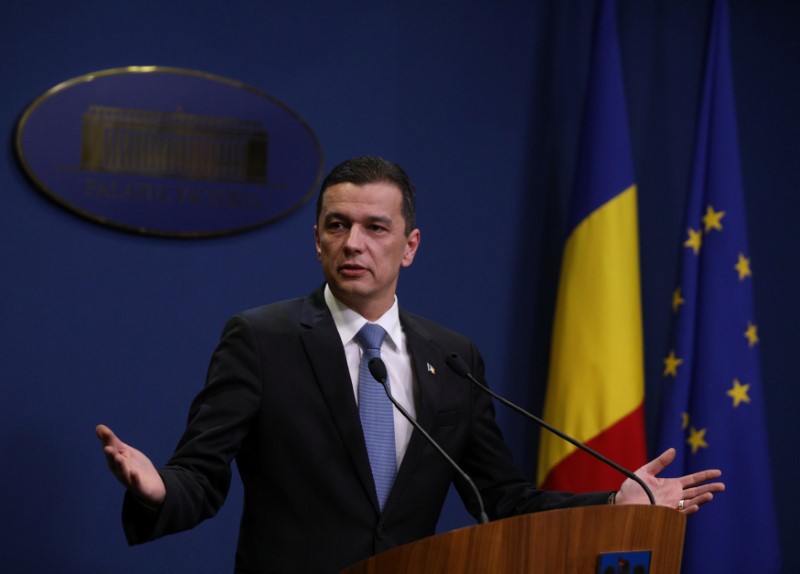By Radu-Sorin Marinas
BUCHAREST (Reuters) - Romania's ruling leftists filed a no-confidence motion in parliament on Sunday against their prime minister, Sorin Grindeanu, escalating a conflict which government critics say reflects internal rifts over anti-corruption policy.
The Social Democrat Party (PSD) and its coalition allies withdrew their support for Grindeanu, 43, last Wednesday, saying he has failed to implement the PSD's broad governing agenda since it won a parliamentary election last December.
Grindeanu refused to resign and was expelled from the party.
Independent observers said the PSD is likely unhappy with Grindeanu's failure to relax Romania's anti-corruption rules earlier this year and wanted to oust him to ensure a different premier does more to protect party seniors facing graft charges.
Romania is seen as one of the European Union's most corrupt states and Brussels has kept its justice system under special monitoring since its 2007 entry.
"Grindeanu's removal seems to be at the forefront of an effort by the ruling coalition to relaunch a drive to weaken the anti-corruption fight," said commentator Mircea Marian.
At stake could be the future of PSD leader Liviu Dragnea, who has received a two-year suspended sentence in a vote-rigging case and is now on trial in a separate abuse of office case.
After a recent constitutional court ruling, the government has to propose a cap on financial damages caused by abuse of office offences, a level which could be decisive in Dragnea's case.
"This threshold is among reasons why Grindeanu had to be removed," said political analyst Cristian Patrasconiu.
A push this year by Grindeanu's government to decriminalise several corruption offences triggered the biggest street protests in Romania since the collapse of Nicolae Ceausescu's communist rule in 1989.
The government was forced to rescind the decree, and its architect, Justice Minister Florin Iordache resigned, citing a need to appease public opinion but saying he had done nothing wrong.
"Clearly Grindeanu is perceived by PSD leaders as lacking a firm hand," said Marian. "So they are looking for a prime minister tough enough to handle and defuse any potential street protests (in the future)."
The PSD and its junior coalition ally have enough deputies for the no-confidence motion to succeed, when it is put to a vote on Wednesday.
Neither grouping has said anything about their plans regarding anti-corruption policy, but both reject accusations they want to relax the rules for political gain.

"This is a vote against a pseudo-government, one without any legitimacy. A government which believes it can exert power in its own name," Social Democrat senator Mihai Fifor told parliament on Sunday.